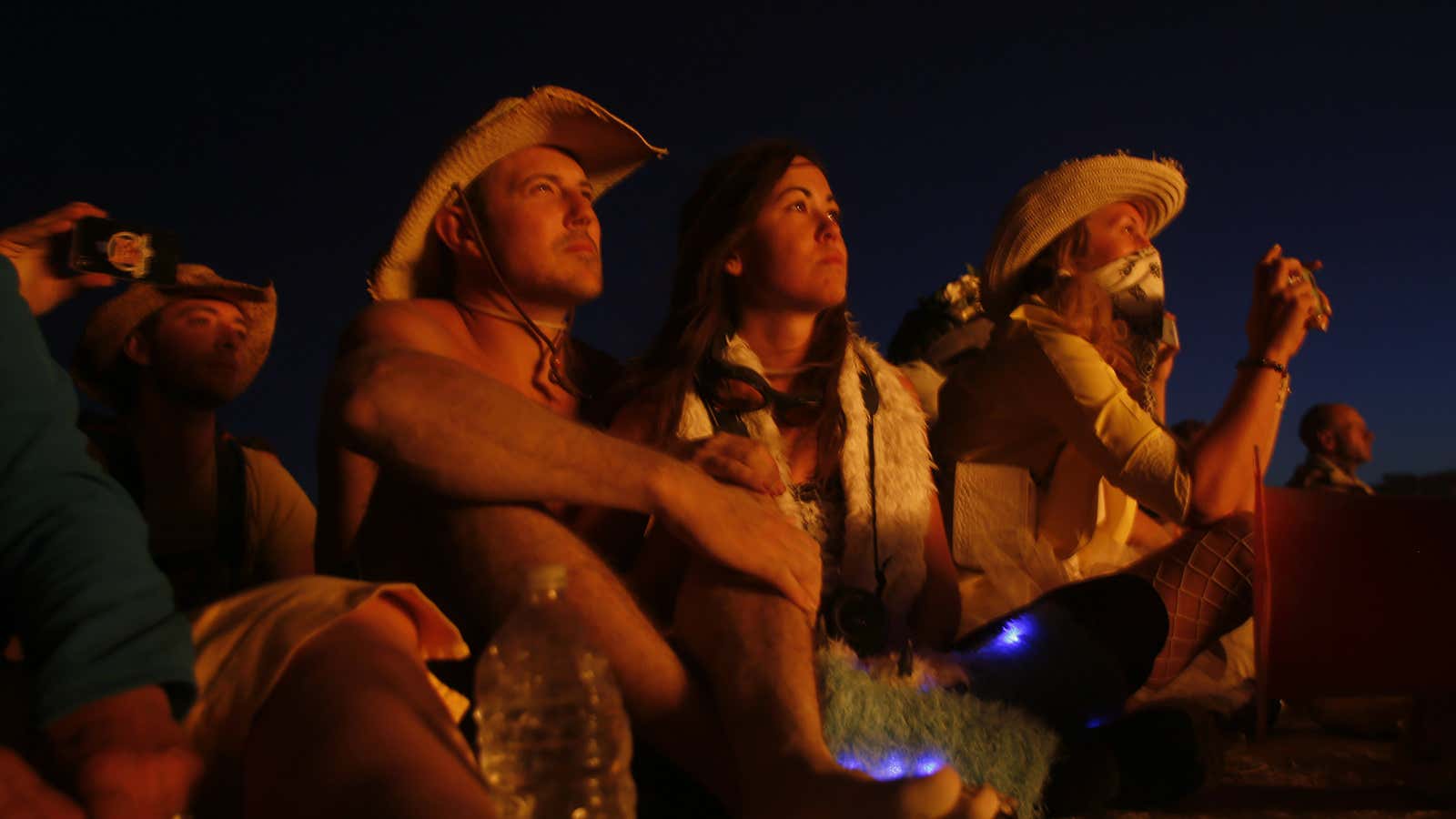Every Tuesday, the employees of Nootrobox, a startup that develops “smart drugs” for heightened cognitive functioning, fast for 36 hours. Co-founder and CEO Geoffrey Woo recently boasted to Quartz that Tuesdays are now “one of our most productive days of the week.”
The team framed the fast as “biohacking,” a trend that seeks to acutely manage the human body in order to operate with the highest clarity and focus. It’s an extension of the quantified-self movement and is behind the Valley’s obsession with meal-replacement drink Soylent.
Yet fasting takes biohacking to another level. Although fasting diets have gained in popularity, fasting is, at its core, a deeply spiritual practice. In many ways it’s a spiritual litmus test for those willing to suffer through short-term pain in order to reach a higher state of enlightenment. Fasting is a popular practice across all major religions—Islam, Judaism, Christianity, Hinduism, among others. In Native American culture, it’s part of the traditional vision quest ceremony, a rite of passage for young males entering adulthood. Abstaining from sustenance is also a controversial and powerful weapon used in protest movements. In other words, fasting is a practice that has long been treated with respect and reverence, not something to be taken lightly.
In order to acquire the best talent, Silicon Valley companies appeal to this universal human desire to become part of something greater than oneself. Many startups tie their business goals to a mission around changing the world. It’s an effective recruiting and retention tactic. Companies operate with a set of core values and there is a sense of “opting in” when workers select an employer. Despite the recent backlash around the lack of diversity in Silicon Valley, culture fit is still a high priority at startups. Initiation rituals—like the 45-day bootcamp at Buffer—are common. Nootrobox states its axioms on its website, including the belief that ”hard work is a means to self-actualization.”
The Nootrobox founders explained that through fasting, they are seeking to reach of state of ketosis, where the brain uses ketones (from fat tissue) instead of glucose (sugar) for energy. Because of the side effects (increased energy, loss of appetite), the team says it has adopted fasting as a bonding ritual. “Everyone can benefit from the work we’re doing at Nootrobox,” Woo told Quartz. “But not everyone should work at Nootrobox.”
Although it’s pushing boundaries, Nootrobox is hardly unique. Silicon Valley has been hacking spiritual disciplines for decades in order to reach peak performance, peak innovation, and peak cult brand. Steve Jobs was famously influenced by Zen Buddhism, a disciplined meditation practice, and LSD. His successor as Apple CEO, Tim Cook, recently pleaded to the Hindu gods in India. Mark Zuckerberg speaks openly about how he is inspired by Buddhism and tries to integrate its tenets at Facebook. Google (Alphabet) has sought the guidance from spiritual leaders and offers employees a popular course on meditation. Transcendental meditation is trending, as is the use of plant-based hallucinogen ayahuasca (recently parodied in The Onion). It’s all part of the consciousness movement.
Religion is marked by rituals, and one of the most popular rituals is Silicon Valley’s annual pilgrimage to Black Rock City, Nevada, for Burning Man. The event is defined by radical self-reliance and self-expression; it’s a pop-up city in the desert that operates outside the normal bounds of society. It is the manifestation of the Silicon Valley ethos and an important destination for Zuckerberg, the Google founders, Amazon’s Jeff Bezos, among a host of other tech luminaries. Tesla CEO Elon Musk famously came up with the idea for Solar City with his cousin while en route to Burning Man. “There is a religion, a social contract in play here,” Silicon Valley venture capitalist Greg Horowitt told TechCrunch. ”You come into Burning Man knowing that your values align with the values of the people here, and it’s all about creation and experimentation.”
Silicon Valley has blurred the line between work and the rest of its employees lives with superfluous perks in order to increase productivity and company loyalty. Integrating spiritual practices is no different.
